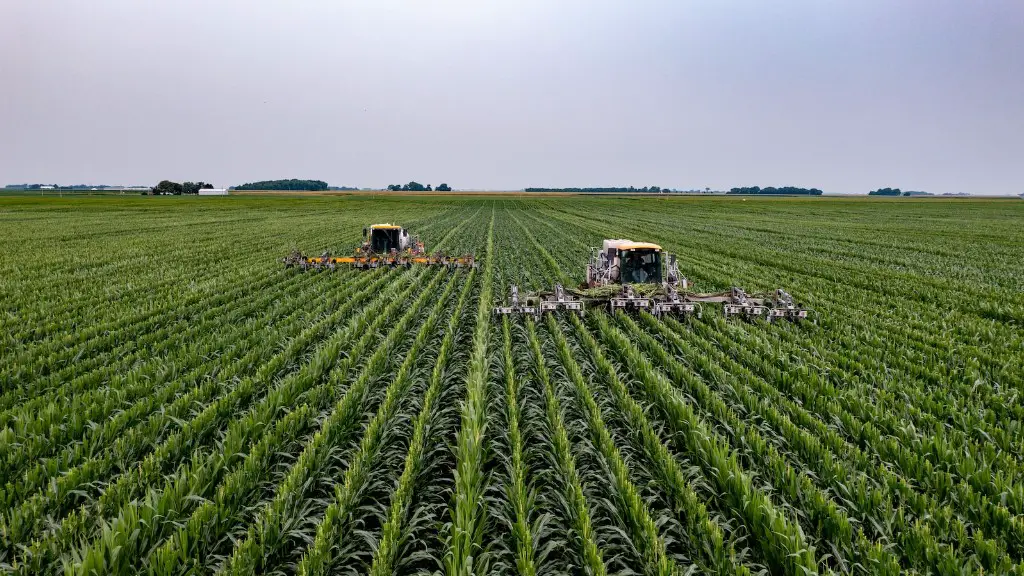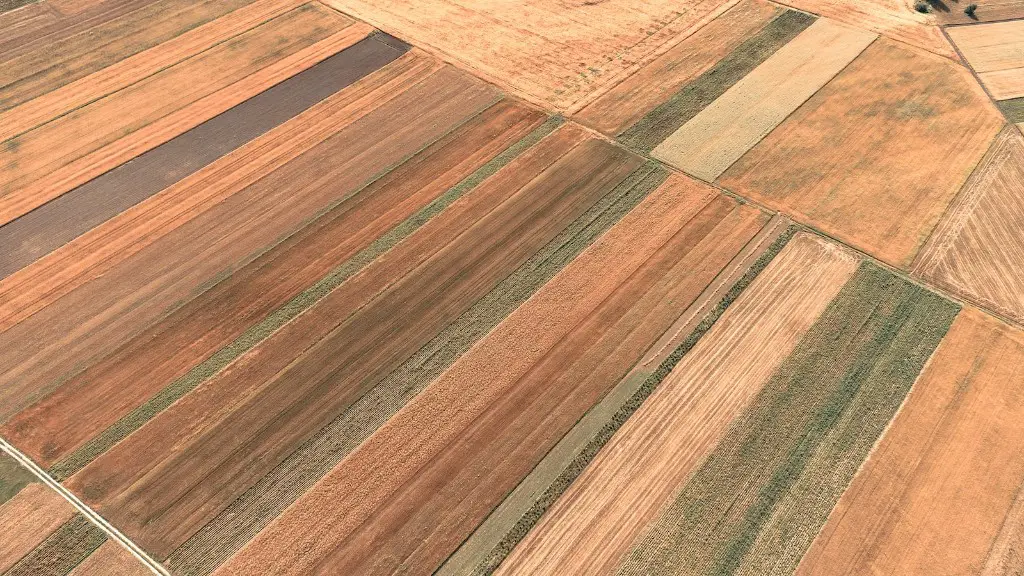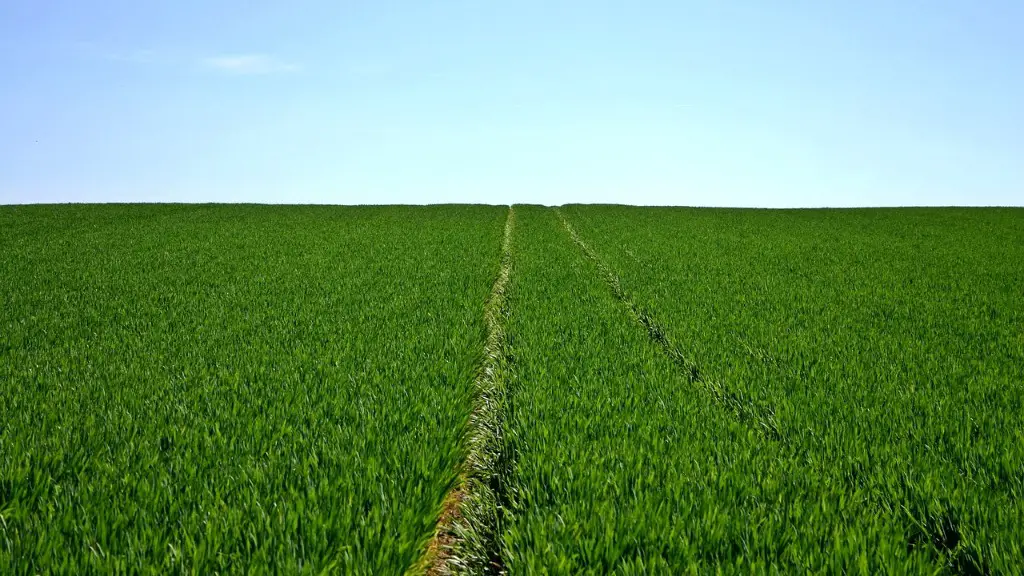Agriculture is an important way to create and keep employment. By deploying best practices and modern technology, it can create meaningful work for many rural communities. From farming, horticulture, and animal husbandry to fishing, agriculture-related jobs are important sources of organized labor and can generate substantial economic returns for their contributors.
Beyond direct employment, agriculture plays a significant part in secondary jobs, such as manufacturing and distribution of agricultural products. Additionally, farmers also provide important services to their local communities, such as maintaining and improving the land they work on, providing educational and environmental resources and providing a source of commodities.
As more and more companies focus on global sourcing and connect to rural livelihoods, they provide opportunities to small-scale farmers, who in turn create employment. By connecting to bigger markets through processing, packaging and distribution, incomes prospects of small holders improve. In addition, new and innovative technologies, such as sustainable farming, organic farming, and agroforestry, give these smallholder producers further opportunities to increase their incomes and improve their productivity.
The benefits of agriculture, when done responsibly, can extend far beyond the community. This can include increasing the tax base, revitalizing local business, and providing a better quality of life for individuals, which in turn can help to stabilize communities and support larger economic development activities.
Additionally, with the help of effective support programs for small-scale farmers, such as protective policies and grants, along with access to market information, increased access to credit, agricultural insurance, natural resource management technologies and improved access to resources, the security of small-scale farmers in agricultural economies can be increased.
Agriculture contributes unique dynamics to the labor market and provides a critical boost to economic development. No matter the context, effective agricultural practices, moderated with support policies, can ensure that farming creates and sustains employment both on a local and global scale.
How investing in agriculture can create employment
Investments in agriculture can be a boon to job creation, in both the short-term and the long-term. Governments, development organizations and corporations can play a role in funding agricultural projects. By providing capital, training and insight to smallholder farmers and entrepreneurs, career options in the agricultural sector are heightened and can be sustained in the future.
Research into sustainable agriculture and food production creates jobs for researchers and scientists. Their findings also have the potential to combine creativity with economic gains and global sustainability. Similarly, agricultural industries, such as biotechnology, animal husbandry and aquaculture, can create a wide range of employment opportunities.
Financing of agricultural projects is beneficial to both investors and farmers alike. These investments can provide long-term jobs and improved infrastructure, such as education and health services, water and sanitation, electricity infrastructure and access to credit, which can provide ongoing financial security.
International agreements can also be used to incentivize investment into individuals and small-scale organizations, which can create job security for farmers and smallholder producers. By providing underdeveloped or developing countries with the tools needed to produce high-yield crops, investments in agriculture open up employment opportunities for local entrepreneurs and give them the power to further their successes.
Agriculture is also a secure option for return on investment, as the market staples of food and raw materials are required in increasing amounts as population and demand grow. Great potential lies within investing in agricultural projects, as it offers a captivating opportunity to create sustainable economic development opportunities.
Distribution of benefits
Employment in agriculture can be distributed extensively and new opportunities can be developed. Investments in agriculture can benefit local communities by creating employment amongst unskilled and semi-skilled workers. This can include casual labour and task-based roles, such as farm workers, transporters, and supervisors.
For integrated agricultural value chain projects, direct employment can include sellers, packagers, aggregators, processors, marketers, and those dealing in input supplies. Field work, such as weeding and harvesting, typically offers opportunity for part-time and seasonal employment.
Besides, employment and work opportunities can also be provided for women and other marginalized groups. By allowing them to participate and earn an income from the production and sale of agricultural produce, this opens up other opportunities for them to be empowered, engendered, and integrated into the economics of the sector.
In addition, there are additional benefits that come with employment in agriculture. These can include financial assets, such as savings, improved access to credit, and risk-management resources, but also access knowledge and training, such as pest control, product marketing, and supply-chain management.
Improved product quality and a higher level of productivity can also generate additional benefits to the economy. Well-developed and competitive markets can also provide a platform to generate higher-value products and services, further enhancing growth and profitability in agricultural production.
The impact of income on employment
The income derived from employment from agriculture can benefit individuals and their families directly by increasing their purchasing power and allowing them to access markets, health and educational opportunities. This in turn can lead to improved standards of living and better health outcomes.
Increases in the income of small-scale farmers can fuel further growth by enabling them to introduce more innovative techniques and practices, diversify their businesses, and extend their reach in the market. This can spur further growth and job creation.
The collateral benefits of increased incomes can include improved infrastructure and development prospects, such as clean water and sanitation systems, quality housing, and access to healthcare, which can in turn provide a platform to propel growth and support further development. Furthermore, increased incomes in agricultural communities can also encourage entrepreneurship opportunities and wealth-creating activities, making farming a much more attractive and viable form of employment.
Environmental benefits of employment in agriculture
Agriculture often provides environmental benefits as a result of increased employment. Small-scale farmers and rural economies are likely to incorporate sustainable production practices in their efforts to maximize their economic gains. This can include terracing of crops, agroforestry techniques, the planting of hedgerows, composting, the introduction of resistant crop varieties, and crop rotation, amongst other practices.
These farming techniques are essential to reduce soil erosion, preserve natural resources, and protect biodiversity. As a result, agricultural employment can help to preserve the planet’s natural environment and stabilize ecosystems, whilst profits from the business activity can be shared among the employees, investors, and landowners.
In addition, sustainable agriculture and agriculture-related activities can reduce global warming by regulating carbon emissions, as well as reducing water pollution and the use of pesticides and fertilizers.
Conclusion
Agriculture is an important way to create and keep employment. Through investments, support, and education, the sector enjoys substantial economic returns, whilst creating and sustaining jobs in local and global markets. Furthermore, the benefits of employment in the agricultural sector extend to include secondary employment, increased access to resources, the preservation of the environment, and improved standards of living and health outcomes for individuals and communities.





